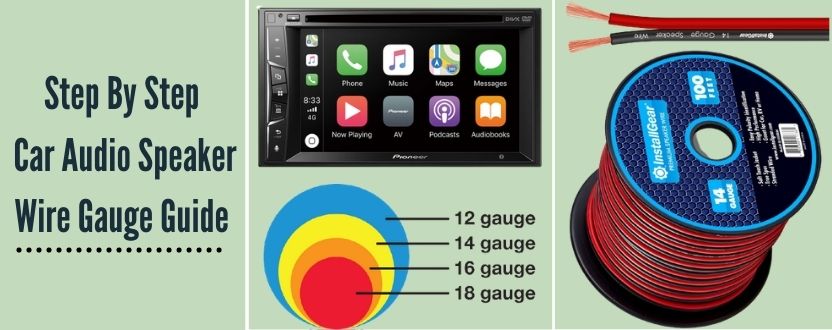Choosing the right wire gauge for your car’s audio speaker might be a daunting task. But you shouldn’t back out from it. With a little help, you can end up with a pretty formidable understanding of the entire concept.
Heck, you can even help your friends out next time. All you’ve got to do is follow our car audio speaker wire gauge guide. It’s definitely not the same for all cars, and you need to consider some factors before perfecting the length.
That’s where we come in! We’ve got you covered with this extensive guide on choosing the perfect wire gauge for your car audio speaker.
Facts To Know Before Choosing wire gauge for car audio speakers
Now that you know that you should get the best type of wire gauge for your car audio speakers let’s enlighten you with some cool facts.
1. Easy to Pick
The most significant thing to keep in mind is that there’s a standard size for almost all types of stereo systems. So whether you’re buying one for your car audio or a home theater system, you can go for the standard choice.
In this case, an 18-gauge wire gauge would be considered to be standard. When you’re looking at the price-performance ratio, this length would definitely give you the best value overall.
There is a slight difference between the wattages of car audio speakers and the theater systems in your home. But keep in mind that an 18-gauge wire gauge would do just fine for a 50W car speaker, and then some.
2. Power Handling Rating
When it comes to choosing the correct speaker wire gauge, the power handling rating comes into consideration. The rating of the wires depends on the power of the speakers used in your vehicle.
If you haven’t gone overboard with gigantic boom boxes in your truck, an 18-gauge wire would be enough to tackle a 4Ohm car audio speaker.
Things are slightly different for home speakers, though. Since they consume half the power, you can opt for a more powerful speaker with the same 18-gauge wire.
3. Copper vs. CCA
Another thing that most people tend to forget about while choosing the best wire for your car audio speakers is the difference between copper wires and copper-cladded aluminum wires.
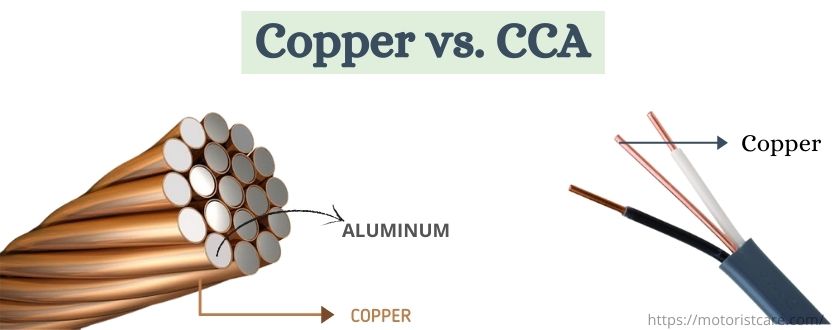
Experts suggest that you should opt for full copper wires over the other choice. That’s because the genuine copper wires successfully provide the best conductivity.
On the other end of the spectrum, CCA wires are manufactured to cut costs of using genuine copper. You should pretty much try and avoid these types of cables.
But if you’re really short on budget, you can opt for these. Just don’t expect a ton of durability out of it.
4. The AWG Standard
If you’re new to the word AWG, you should know that it stands for the American Wire Gauge standard. And most wires should be following this standard if they’re not already.
The best wire gauges follow the AWG standards. So if you’re on the hunt for a proper wire gauge for audio speakers, look for one that strictly maintains this standard.
AWG ratings also specify how much power the wires can handle. So if you’re looking to blow the sound through the roof of your car, you’ll probably need a wire gauge with a higher AWG rating.
Which Size Wire Should I get?
If you’re looking for a quick and easy answer, well, there really isn’t one. But getting the 18-gauge wire should be the safest bet. They’re perfect for car speakers of 50 watts and 4 ohms. They can also do quite well with 100W home speakers.
And, if you’re looking for wire gauges for higher powered systems that come with powerful subwoofers, then you’re going to have to dish out a lot more cash. Stick with 16gauge ones for these systems.
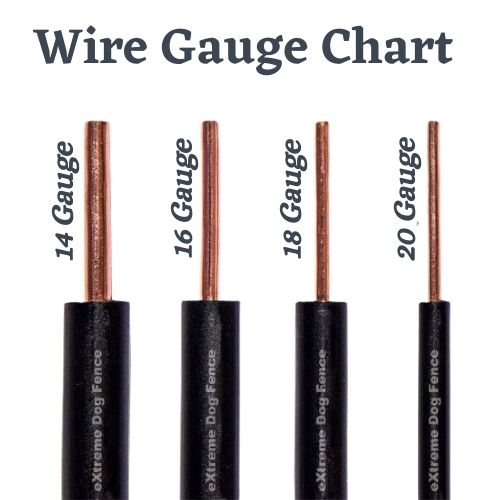
Types of Speaker Cables
With that out of the way, let’s take a peek into some of the cables that are available in the market for you to buy. You can find a couple of different choices, but not all of them would be perfect for your car.
There are a few things that you need to take into consideration before choosing a specific type of cable, so let’s see what the factors are.
Conductivity
Conductivity matters a lot when it comes to buying wires for your car audio speakers. Copper is the best conductor, but you can opt for OFC cables too if you can get your hands on them.
That’s because they are pretty rare nowadays with the abundance of CCA and pure copper cables. A lot of energy gets lost while traveling from the system to the end of the speakers.
So you need to make sure you get a cable with maximum conductivity so that you lose minimum energy. OFC cables are heat resistant too. And since you’re going to be using them in the engine bay, you need the additional layer of protection from heat.
Strand Count
Another thing to keep in mind while choosing cables is the copper strand count of the cables themselves. You’ve probably seen thin and thick copper wires throughout your life. It’s better to use cables with a higher strand count.
If you get a cable with a higher individual strand count, you can expect better durability. That’s because these cables are far sturdier than single-strand cables. And if one of the strands split, you wouldn’t even notice the difference in quality.
Better flexibility is another reason why you need cables with a higher copper strand count. If you’re using cables inside the engine bay to route them into the vehicle, you’ll need all the flexibility that you can get. A cable with a higher strand count will almost certainly help you achieve that.
Better flexibility is another reason why you need cables with a higher copper strand count. If you’re using cables inside the engine bay to route them into the vehicle, you’ll need all the flexibility that you can get. A cable with a higher strand count will almost certainly help you achieve that.
Different Cable for Subwoofer?
A lot of people stay confused about this particular issue. Then they end up getting the same type of cables for their car subwoofer. Well, this is a mistake you won’t be repeating after you’ve read this.
A lot of budget cars have cheaper stereo audio systems that don’t come with subs. So, when people are upgrading to a more expensive car, they don’t know that they need a different sub wire gauge.
Using the same type of cable for your subwoofer might end up dampening the woofer even before you can use it properly. The common AWG rated wires for subwoofers are the 16, 14, and 12 gauges.
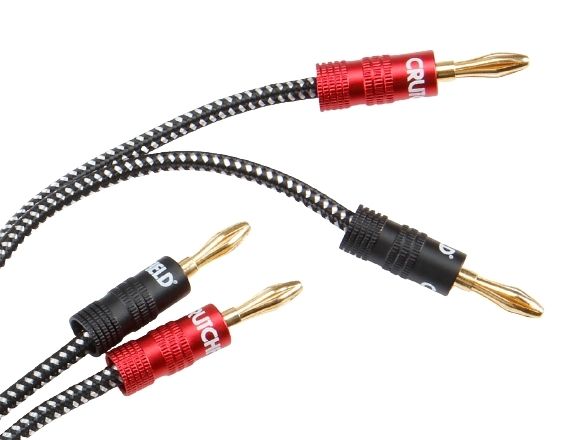
That’s because the subs typically use a lower gauge wire to function properly. This allows them to generate enough bass and give you that incredible sound experience.
How Much Why Should You Get?
To make sure that you didn’t get too little cable, it’s always safe to measure beforehand. That’s because not all cars are built the same, so you can’t expect the seller to just give you the wire with the perfect size.
Take a tape measure and start measuring lengths from each of your speaker outlets. The most common measurements should be 8 feet for the front door speakers, 12 feet for the rear door speakers, and 16 feet for the speakers in the rear deck.
But you still better measure things well. You definitely don’t need some tacky speaker wire gauge calculator for this since it’s quite simple. Take a second measurement to make sure it’s perfect.
Wire Length Calculation
Don’t worry, we’re not going in too deep with the mathematics. This is a logical speaker wire calculator that could give you a rough estimate of how much wire you actually need.
For a car, you’ll need to run the cable from the dash unit to the speakers on the two front doors. Then you’ll need to run wires to the two read doors and the back deck.
So you’ll need around 50 feet of wire to cover the entire vehicle; that is, 18 feet each for the front doors, then 16 and 20 feet for the back end. Remember that this is a standard calculation, and you can’t expect this to be the same for all car models.
Identifying the Wire Ends
Before getting your hands dirty, you need to know a few things about the different ends of the speaker cables. It’s essential to figure out which one is the positive wire and which is the negative one.
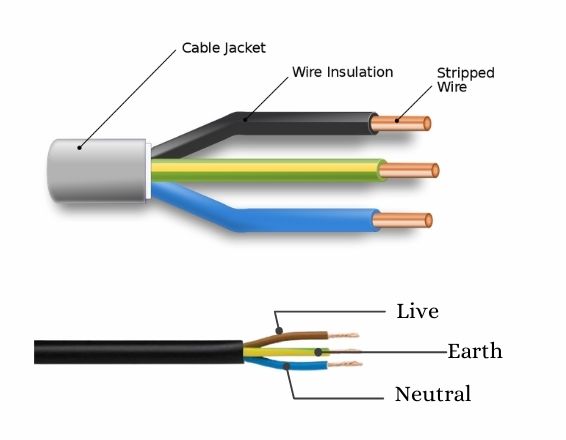
Since the cable coverings aren’t the same with every cable, the cable manufacturers have their own standards of marking the positive and negative ends.
1. Colored Cables: The most common ones are the red-black color-accented cables. And you have probably seen them in other electrical appliances. In this case, the cable with the red covering is the positive one.
2. Translucent Cables: Some manufacturers opt for transparent rubber layers over their cables. But they also have a unique way of marking the two ends. In this case, the cables with golden wires are typically the positive ones while the silver ones are negative.
3. All-Black Cables: Some cables come with a thick black covering for both the positive and negative ends. So, there are actually two ways to identify these.
You can find one part that has printed labeling while the other is empty. For these types of cables, the printed ones are the positive ends.
Another form of these black cables has a stamped part. The stamped side is the positive one, while the non-stamped side is the negative one.
Cutting Speaker Wires
There are a couple of different ways to do this, so pick the way you’re comfortable with. You can either use a wire stripper or a crimper. You can even use a pair of pliers if you’re confident about your accuracy.
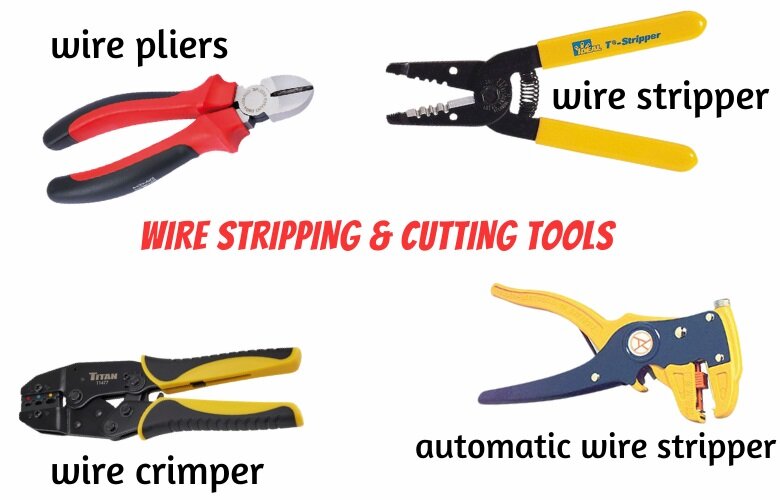
If you want to take things up a notch, get yourself an automatic wire stripper. You won’t need to set any sizes for this one, the tool will automatically adjust to the size of the wire and strip the covering off.
Pro Tips
That should be all you need to know. Now it’s time for a few pro tips that can come in handy. Albeit we’ve talked about CCA wires, we recommend that you get 100% copper wires to get the absolute best performance.
When connecting the wires, try getting a few insulating shields. These little things will make your life a whole lot easier. Use them between the joints and use a heat gun to let them shrink. Trust me, they’re way better than the electric tapes.
FAQs
Do I need an Expensive wire?
No, and yes. The quality of the wire matters because your sound quality depends on it. But if you’ve got a low wattage sound system in your vehicle, you won’t need to dish out the extra cash for premium wires.
Is the stock speaker wire good?
If you’re not a sound enthusiast who wants incredible sounding speakers, you don’t need to change the stock wires that come with your vehicles. But it’s worth it to spend extra if you really want that juicy bit of sound from your car stereo audio speakers.
Is an 18-gauge speaker enough?
It should be enough in most cases. But if your car audio speaker comes with a subwoofer, then you have to opt for a lower gauge wire. A 16gauge would do just fine in that case.
How do I run this next to the power wire?
That’s easy. Just make sure that there’s a central ground point for all the wires. There’s an ongoing myth that you can’t do that, but it’s completely untrue.
Final Words
If you’ve come this far, you should probably already have a clear idea about wire gauges. This car audio speaker wire gauge guide covers all the basics and dives deep into all you need to know.
Refer to this guide when you’re on the hunt for a perfect match for your brand new car audio speakers. A good set of wires will enhance your entire experience with the audio.
If you’re on the hunt for an average rated wire, get the 18 gauge one with an AWG standard rating. This should automatically enhance your experience.

